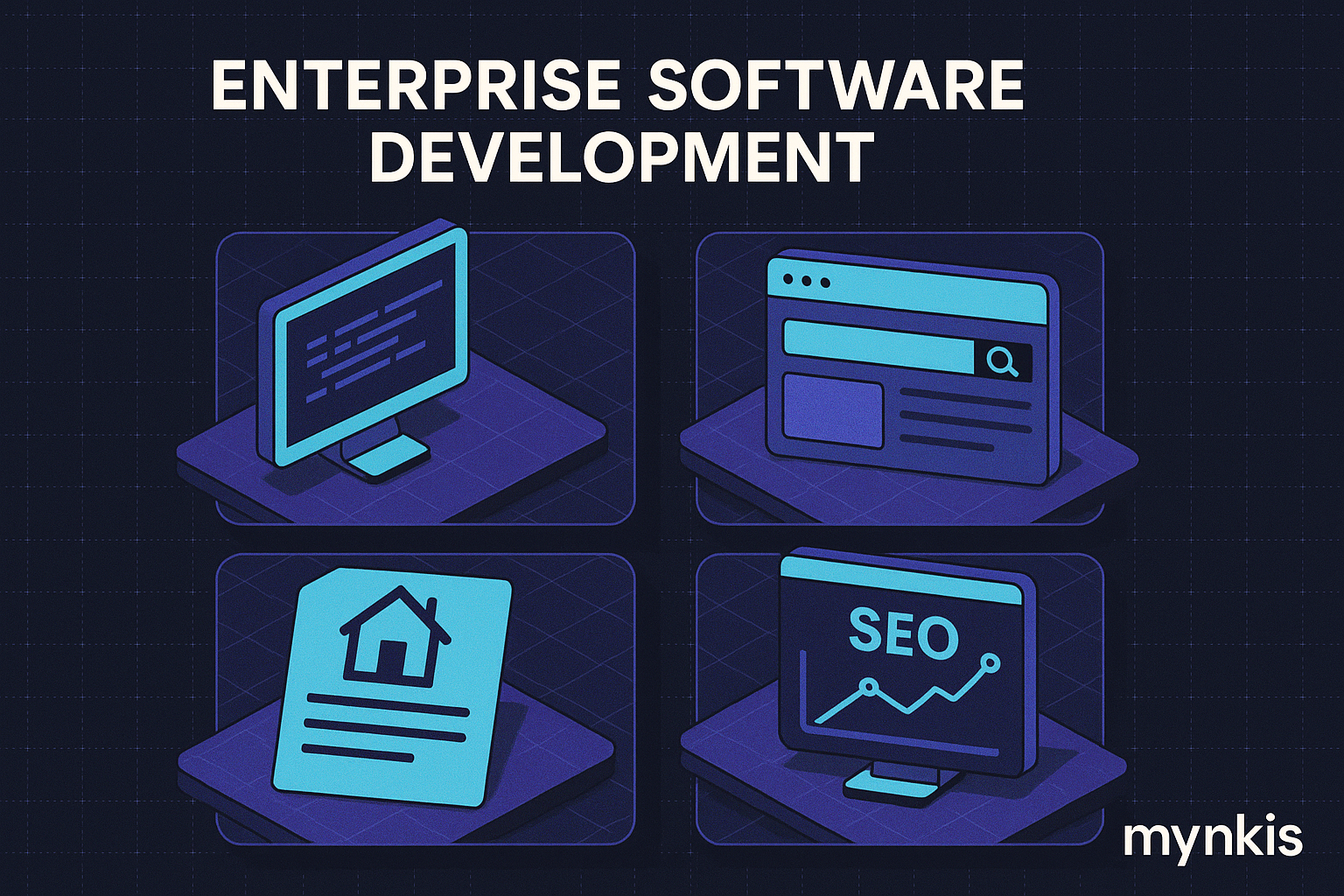Schedule a Demo
When embarking on the journey of enterprise software development, the first and often most critical step is to thoroughly understand your business needs. For brokers looking to optimize their property listings, this might mean evaluating how SEO features can be integrated to improve search rankings for local queries. In such cases, what specific functionality are you looking for? Are you aiming to streamline your listings management, enhance user experience, or maybe increase visibility through search engine optimization? Clarifying these points helps set a clear foundation for the project.
Selecting the right technology stack is crucial in custom software development. For a broker, integrating features like local SEO into a property listing website requires not just the right programming languages but also frameworks and tools tailored for scalability and performance. Technologies like React for front-end development, paired with a robust backend framework like Node.js or Django, can provide the necessary flexibility and power. Balancing these choices based on current technological trends and your future scaling needs might feel daunting, but it’s essential to ensure your investment grows with your business.
Anyone who's spent any time online knows the value of a seamless user experience. For property listings websites, ensuring that users can navigate listings easily, filter results efficiently, and get contact info or book viewings with minimal effort is key. From my time working with clients in various industries, I've witnessed how investing in user experience pays dividends in user retention and engagement. For brokers, this means meticulous design of user interfaces, quick load times, and efficient functionality—each contributes to better SEO through higher user satisfaction and time on site.
Enterprise software isn't a static product; it's an investment meant to grow as your business does. For brokers, an important consideration is whether the software will continue to support their evolving needs. Will it integrate new features like virtual property tours or advanced analytics smoothly? Engaging with developers experienced in custom software development who understand the importance of architecting for scale can make all the difference. According to a McKinsey & Company report, scalability considerations drive competitive differentiation in digital transformation projects.
No business solution exists in isolation—your new software must play well with existing systems. This could involve syncing listing data with your CRM, connecting to third-party analytics tools, or allowing seamless integration with other brokers' systems to facilitate industry-wide operations. The right enterprise software development approach ensures your system is not a lone wolf but an integral part of your ecosystem.
In a world increasingly dominated by data regulations such as GDPR and CCPA, ensuring your software meets compliance standards cannot be overlooked. For real estate brokers, this includes handling personal data carefully. Together with compliance, security measures play a significant role—how is sensitive listing and client information protected? Companies like Akamai emphasize the need for a solid cybersecurity strategy that protects your company's data assets, making it a topic high on the list of any serious tech investment.
Building custom software is an investment both in time and money. For brokers looking to enhance their property listing's SEO capabilities, laying out the costs involved from initial development to ongoing maintenance is crucial. Additionally, calculating the time it'll take to get from conception to market is vital to capture the competitive advantage. Based on available research, ensuring transparent discussions around budget and timelines with your development team can reduce the likelihood of surprises down the line.
Finding a development partner who understands your industry nuances (like real estate for brokers) and offers personalized custom software development can make or break your project. These partners can navigate complex real estate regulations and understand what 'SEO-enhancing features' really mean for local property searches. Engaging a development partner begins with thorough research and, for insights, consultations like the Harvard Business Review often speak on the value of partnered ventures in digital transformation.
The world of software never stands still. Adopting a mindset of continuous improvement through regular updates, feedback from users, and timely support can keep your software competitive. For a broker, this ensures their listing website retains optimal SEO performance and functionality. Discussing with potential developers about their post-launch support model can provide clarity on how your platform will evolve and stay competitive.
Seeing is believing—and nothing drives home the impact of good custom software development like real-world success stories. For instance, a competitor real estate platform might have leveraged enterprise web solutions to integrate powerful search engine optimization into their site, boosting local search rankings significantly. Discussing specific case studies during your development planning can shed light on the practical applications of the features you're considering.
In my work with operations managers across industries, I've seen the undeniable power of data-driven decision-making. For brokers, embedding analytics into their platform to monitor performance of listings against SEO criteria allows for tweaking strategies in real-time. LinkedIn reports and articles often highlight the enduring necessity of making tech decisions based on empirical data rather than gut feel in today’s competitive landscape.
Actively involving your software's end-users from development to deployment encourages continual improvement. Their input can shed light on usability, feature needs, and how well SEO tactics actually enhance property listings’ visibility. Real estate professionals with hands-on experience input on your platform's development are in Mynkis's league in terms of value returned.
Finally, navigating the world of enterprise software means being open to innovative approaches. Innovations like AI-driven content recommendations or predictive analytics for property market trends can propel your business listings to new heights in search engine rankings. For local property searches, innovation could mean unique algorithms that match buyer and seller expectations more efficiently, guided by the expertise found within thriving real estate tech companies.
